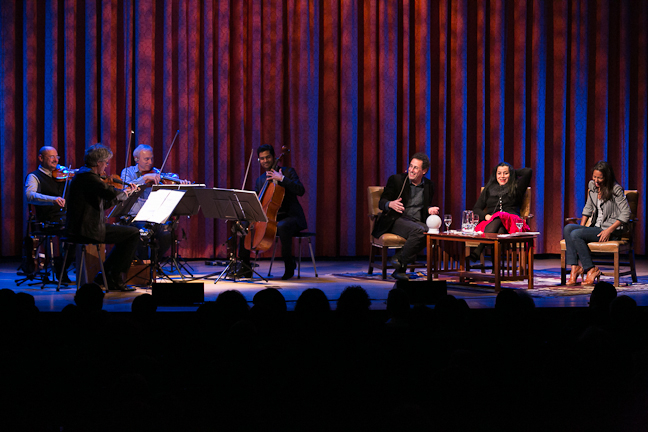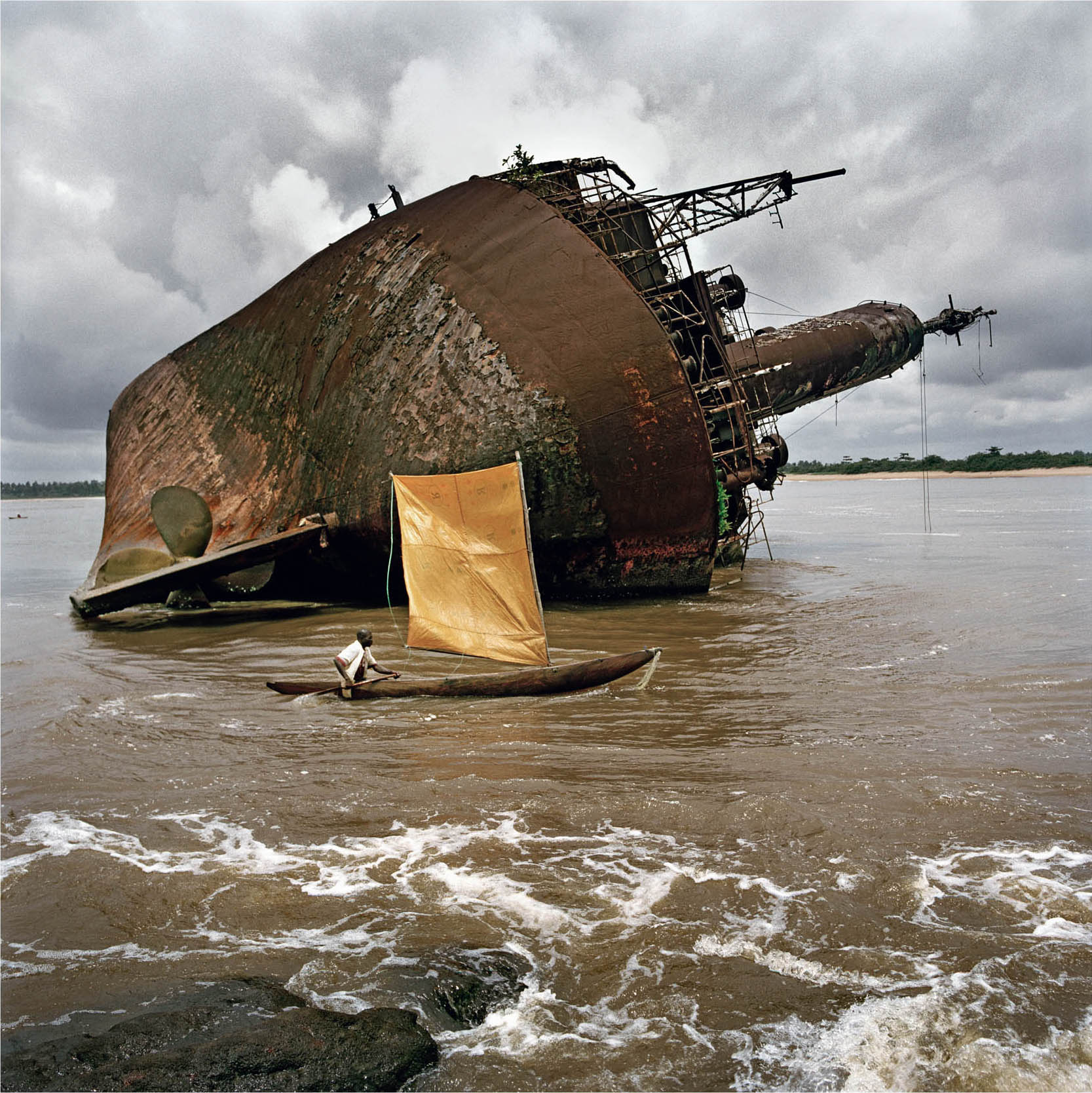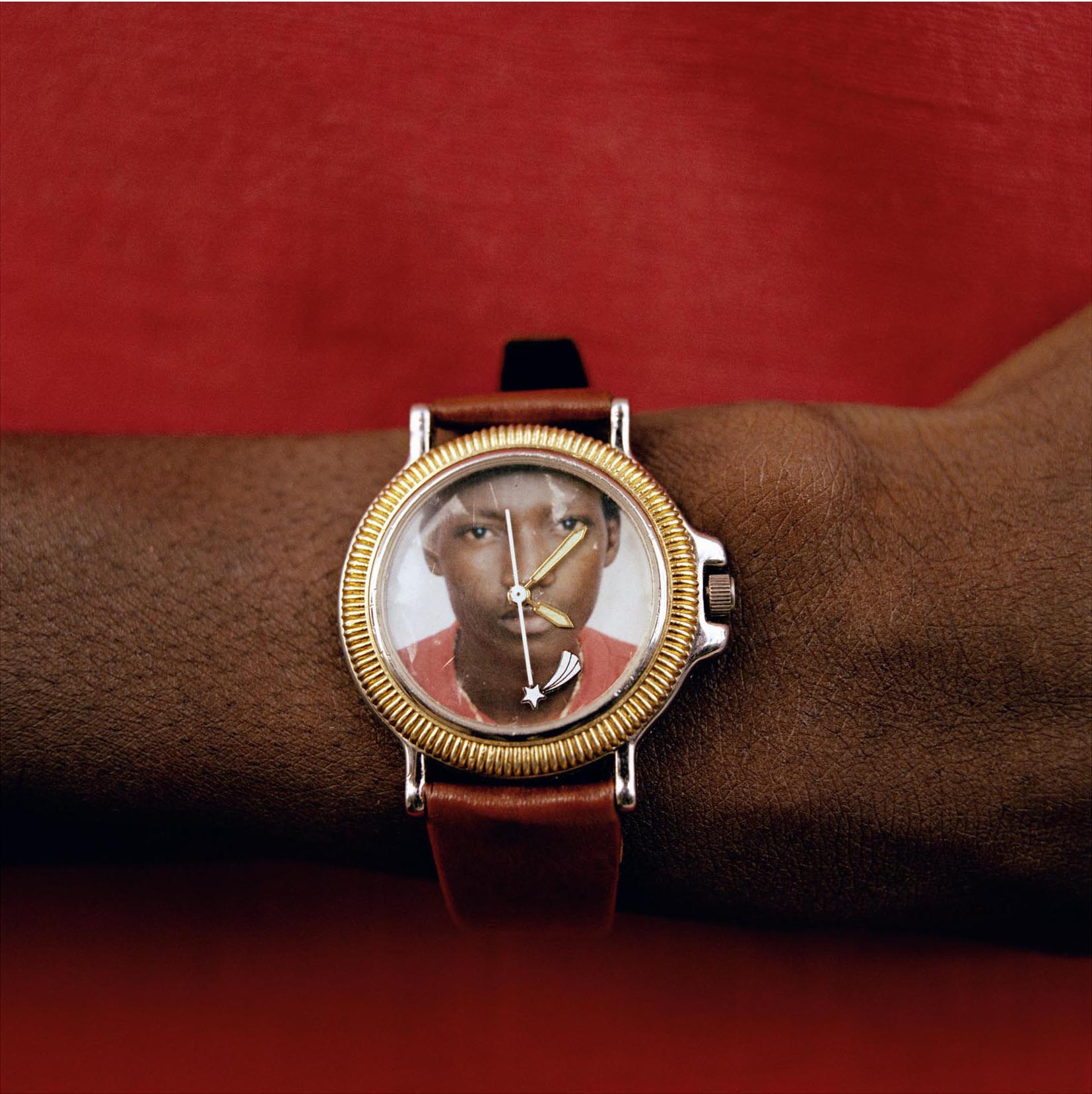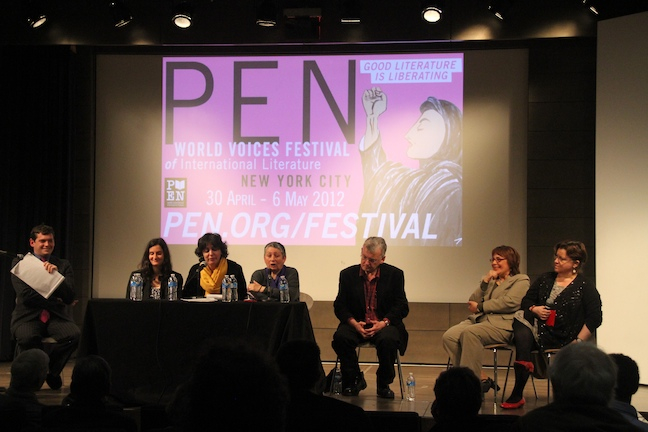This year marked the eighth annual World Voices Festival of International Literature, sponsored by PEN America. The Festival was held in venues all around New York City – in libraries, universities, galleries, museums, cafes, poetry clubs, bookstores and concert halls – from April 30 to May 6. I’ve been a member of PEN for at least twenty years, and the organization is one of my favorites; I am proud to be part of this community. Obviously, sharing membership with famous writers like Paul Auster, E.L. Doctorow and Joan Didion is good for the ego, but that’s not really the point. Founded 90 years ago, PEN has branches in 101 different countries, and it takes its mission very seriously. This is precisely why I wanted to devote some space on this blog to the issues that are always raised at PEN meetings, conferences or events where American writers debate, passionately and continuously, the relationship between art and life.
Susan Sontag, who was President of PEN/America, served for years as the public face of the national organization’s commitment to political as well as literary issues. PEN is a watchdog for freedom of expression, and assumes responsibility for the welfare of writers at home and abroad. The organization intervenes globally in cases where authors are imprisoned or suppressed; it has been active in promoting controversial figures for international prizes, and gaining recognition for people writing under conditions of hardship and censorship. Recently, in the New York branch, there has been outreach toward local communities where reading and writing skills are disadvantaged; published authors work with children and adults to promote the telling of tales coming from diverse cultural points of view. The multifaceted relationships between aesthetics and ideology are always hotly debated topics at PEN gatherings, but they’ve been especially pertinent since the attacks of September 11, 2001. The destruction of the World Trade Center forced writers in the USA to re-examine their political responsibilities, and it also pushed PEN to redefine its understanding of the functions of literature. The PEN World Voices Festival was one of the first and most important responses to our collective trauma.
It became clear to everyone, after that day, that American writers had been living in a bubble of isolation, and by 2003 we were becoming increasingly cut off from artists in other parts of the world because of new political realities. The World Voices Festival was established, first and foremost, to reverse this situation by inviting authors from many countries to New York City, showcasing their work, and asking them to interact not only with their American colleagues but also with a large public. Every year there are invited writers who are denied visas, either by their home country or by the US government; every year the organization attempts to diplomatically work out some kind of an arrangement that will make outreach possible. In a similar vein, about ten years ago, PEN decided to place more emphasis on its translation program. It scouts books from all over the world, and gives translation grants that make possible the publication of writings – essays, novels, poems, shorts stories or non-fiction books — coming from countries like Tibet and Iraq as well as national groups like Native Americans. These translations, and the issues surrounding them, play a major role in the World Voices Festival too.
All of this is intended as backdrop to my main point: that the American chapter of PEN has managed to use literature as a way to bring people together, and to ensure that diverse voices – national or international – are heard. Most important, this outreach in itself is perceived as a political act, regardless of the content of the book or poem. Left wing or right wing, politically correct, incorrect or apolitical, writers have a right to be heard and all people must be free to “speak.” The diverse languages and literary traditions that make writing so much less portable than art – visual imagery can of course be more universally understood as it moves from festival to fair, from book to blog, from temporary exhibition to museum than a book written in an unintelligible tongue – have forced writers to think deeply about their social obligations to communicate. Rather than simply critique institutions for their myopia and their closed canons, PEN has decided to open up the floodgates and let the party begin. “In the course of our eight year history, we hope that our mission has become clear: we seek to present the best of national and international literature and by so doing we adamantly focus on reinforcing the importance of the premise that freedom of expression is the foundation of meaningful existence and the essence of brave and great art,” wrote Laszlo Jakab Orsos (Director of the Festival), Salman Rushdie (Chair) and Peter Godwin, President of PEN.
I must admit that this is my kind of politics. Though beautiful in principle, of course, the real question is: how does this utopian idea play out in the context of the festival, which ultimately is a bouillabaisse of meetings, readings, panels, dialogues, concerts and events aimed at expanding knowledge of international literature in the public sphere. Herta Muller, Nobel Prize winning Romanian novelist, was one of the main speakers, reiterating the address she gave in Stockholm upon accepting her award. Salman Rushdie gave the “Arthur Miller Freedom to Write” Lecture; Russian writer Ludmila Ulitskaya, Egyptian born journalist Mona Eltahaway, Irish poet Hugo Hamilton, Swiss writer Noelle Revaz and Japanese author Masatsugu Ono as well as writers from Harlem and the Black Arts Movement gave presentations. Former French Resistance fighter and renowned scholar Edgar Morin was scheduled to speak (but couldn’t make it at the last minute). The Dialogue series included long and excellent interviews with novelists Margaret Atwood and Jennifer Egan as well as playwright Tony Kushner, who was also a featured speaker at the oddest event of the Festival: the opening night at the Metropolitan Museum, which paired a concert by the Kronos Quartet with the words of Kushner, Iranian graphic novelist and filmmaker Marjane Sartrapi and Palestinian journalist Rula Jebreal. Intended to explore the relationships between music and words (there was, in fact, an entire day devoted to John Cage during the Festival too), the strange evening – during the course of which Jebreal complained about Mitt Romney’s politics, Satrapi rejected language and preferred to groove on the peak experience of being seated between an American Jew and a Palestinian in New York City, and only Tony Kushner created and read an amazing poem about loss and absence in time with the music – instead proved how trivial words (no matter how politically diverse and correct the speakers) seemed next to the brilliant “universal” language of the Kronos Quartet.

"The Kronos Quartet: Exit Strategies" Photo © PEN American Center/Beowulf Sheehan. All rights reserved.
All this being said, the Festival was interesting as it always is. The audience learned about Occupy Wall Street, life in the Panopticon, the impact of the digital world on storytelling, the Arab Spring and always, especially, the creative process of writing: whatever kind the writer might do. One thing that is particularly intriguing to me about PEN is that it does not discriminate for or against various kinds of writing. Playwrights, poets, journalists, graphic novelists, storytellers, translators, critics, essayists and non-fiction specialists (in the humanities as well as science and sports) are all part of the mix. While Salman Rushdie might fill bigger auditoriums because of his novels, most writers do a number of different things, and while fiction might be a privileged medium within the organization there are still no divisions between “high” and “low” culture like those that exist in the art world (primarily, of course, because of elite venues and commodity prices.) Because these categories were on my mind that week, the experience of the Festival colored my response to the beautiful photographs by Tim Hetherington on view at Yossi Milo Gallery in Chelsea at the same time.

Tim Hetherington, "Untitled, Liberia", 2005 Digital C-print © Tim Hetherington, Courtesy Yossi Milo Gallery, New York
Hetherington, of course, was a photojournalist, born in Liverpool, who worked mostly in West Africa and the Middle East. He partnered with writers and filmmakers throughout his professional life, which ended tragically last year in Libya. The exhibition highlighted works from Liberia taken during the civil war in 2005 and others depicting American troops stationed in eastern Afghanistan’s Korengal Valley from 2007-8. Intensely focused on human beings in situations of extreme stress, the pictures capture a range of responses to grief, loss, love and betrayal. All of the photographs were originally made within a photojournalistic context, and Hetherington’s archive in fact became part of the Magnum collection after his death. But of course, in the White Box of an art gallery, the digital files he created (because, as he said, “with witnessing comes responsibility”) morph into large, beautiful C prints: the current gold standard of the art world. Transmuted in this way, the images captured by Hetherington – and shown here posthumously in the first major exhibition of Hetherington’s work in the United States — take their place within the “universal” language of art fairs, auctions, festivals and museums. The mobility of photography – its ability to rend both space and time portable – is here expanded by the malleability of the medium’s language, from a journalistic statement into an artistic one, even after the image-maker’s own death.

Tim Hetherington "Specialist Tad Donoho, Korengal Valley, Kunar Province, Afghanistan", 2008 Digital C-print © Tim Hetherington, Courtesy Yossi Milo Gallery, New York
Certainly this is not the first time this transmutation has happened – in fact, such morphing between popular and high art is becoming a trend, as celebrated pictures by French photographer Luc Delahaye can attest. But of course the separation between these modes of communication – between journalistic and aesthetic expression – is something that was promoted by Alfred Stieglitz while establishing modern art in America at the turn of the last century. Intended as a means to separate populist art and mass communication from the elite expressions of his peers, the wall Stieglitz built was never acknowledged or emulated by Europeans. André Kertesz worked for magazines, and showed the same images in galleries; so did Henri Cartier-Bresson, Germaine Krull and others. Those of us in the photo world in the USA might just now be catching up to our European forebears, and to the writers and organizers of PEN.

Tim Hetherington "Untitled, Liberia", 2004 Digital C-print © Tim Hetherington, Courtesy Yossi Milo Gallery, New York
The amazing Tony Kushner, who writes plays, screenplays, essays and poems, insisted during his “Dialogue” at the New School University that he doesn’t confuse art and politics, though he is active in both. Political activism, essay writing and theater are different methods, he asserted. “My power as an artist is an indirect power,” he stated, “The ideas in an art work are riddles that must have a corollary in the human. Theater and democracy both give the gift of empathy, and because of that they both build community.” By virtue of precisely that gift of empathy, the strength of the “human” so deeply perceived in Liberians and American soldiers alike, Tim Hetherington’s photographs, whatever their origins, have earned their place in the Yossi Milo Gallery and wherever else they may travel in the world of art.
Shelley Rice
© Shelley Rice, 2012.
